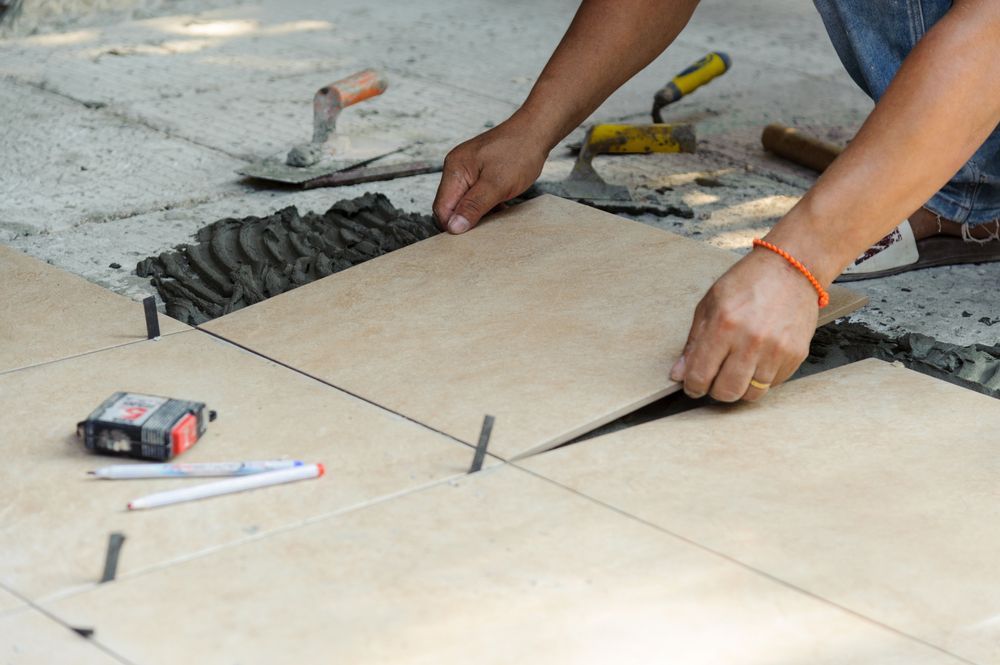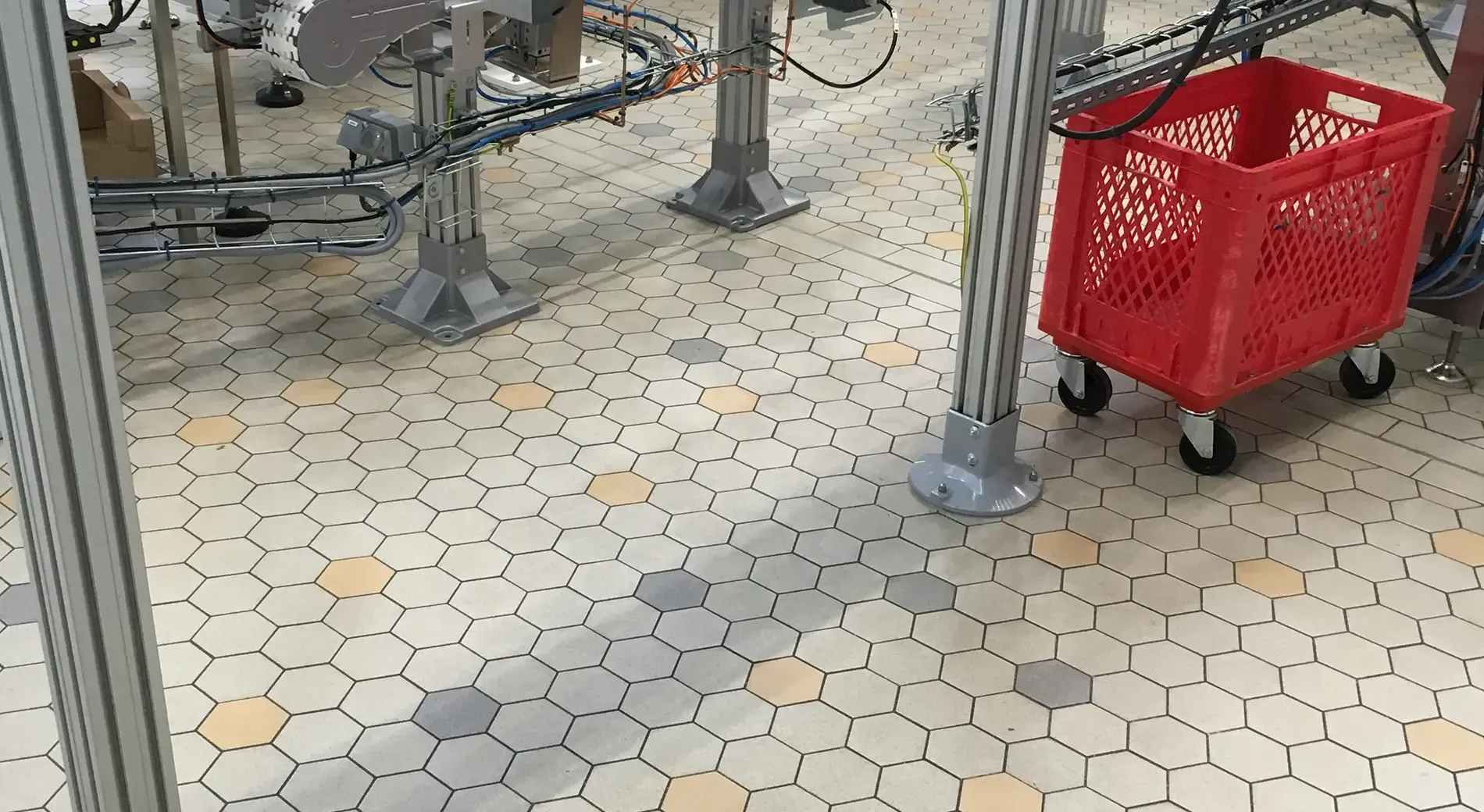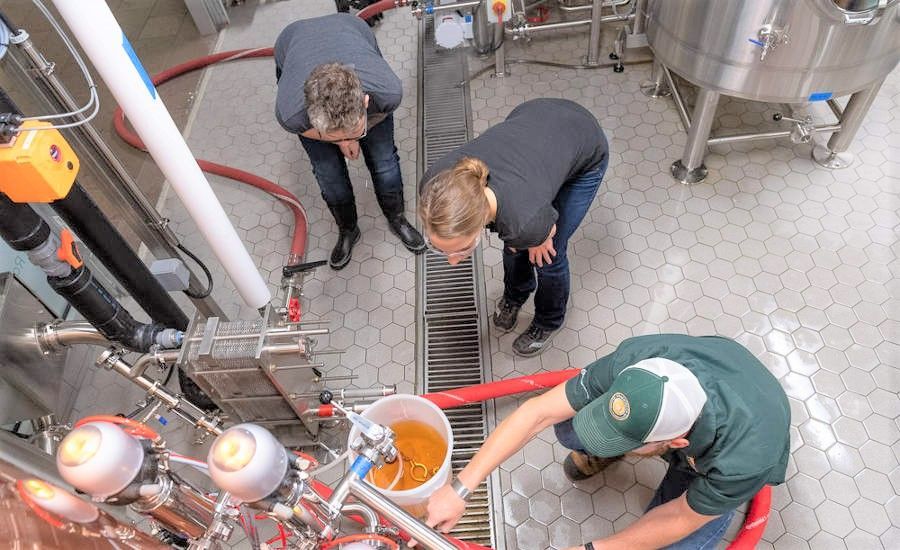Author: Argelith
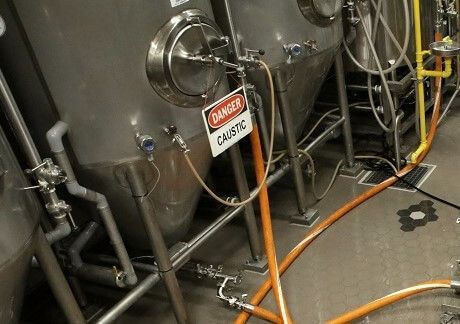
Substances you work with, from food additives to industrial chemicals, end up on the floor. Then you probably clean the floor using a strong detergent. Protecting your building from that barrage of chemical attack is the job of chemical resistant (also known as corrosion resistant) flooring.
When you are in the business of making things, floors take a beating.
Whatever substances you work with, from food additives to industrial chemicals, end up on the floor. Then you probably clean the floor using a strong detergent. Protecting your building from that barrage of chemical attack is the job of chemical resistant (also known as corrosion resistant) flooring.
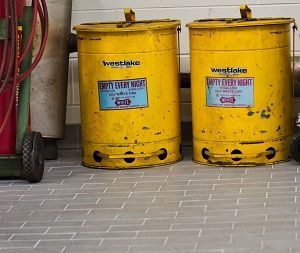
WHAT IS CHEMICAL RESISTANT FLOORING?
Chemical resistance is a flooring material’s ability to remain unchanged after being exposed to chemicals. According to Safeopedia, chemical resistant material does not react to corrosive substances and acts as a barrier to prevent corrosives from passing through.
Chemical resistant flooring is designed to withstand chemical exposure in industrial settings. This flooring material is inert – that is, it does not react when it encounters chemicals.
Corrosive chemicals can be acidic (low on the pH scale) or caustic (high on the pH scale). Any chemical that can cause the surface of an object to deteriorate is corrosive. Deterioration might happen instantly, such as muriatic acid burning skin, or gradually, such as iron rusting in a bridge.
Flooring that is not chemical resistant undergoes a chemical reaction when it encounters these substances. Reactions may result in visible changes to the floor, such as pitting or staining, or in corrosion, breaking down the structure of the floor. Corrosion can cause problems like softened, bubbling, or delaminated coatings or brittle and dusty concrete.
A number of corrosive chemicals are widely used in the manufacture and maintenance of everyday products. Using building materials with high chemical resistance makes industrial businesses more effective and productive while minimizing the need to replace corroded parts.
COMMON CORROSIVE CHEMICALS
Many common products have chemical components that can corrode flooring, particularly at industrial-level exposure. Corrosionpedia notes that a material’s level of chemical resistance may be affected by temperature, concentration, length of exposure, and mechanical load.
Below are some common industrial chemicals and how they are used:
Chemical
Acetylsalicylic acid
Ascorbic acid
Sulfuric acid
Chlorine
Carbonic acid
Ethylene
Sodium hydroxide
Citric acid
Polypropylene
Phosphoric acid
Industry
Pharmaceutical
Food & Beverage
Automotive; Apparel; Chemical
Pharmaceutical; Household Goods
Food & Beverage
Automotive; Chemical
Household Goods; Food & Beverage
Food & Beverage
Automotive; Household Goods
Food & Beverage; Automotive
Common Uses
Aspirin
Vitamin C food additive
Car batteries; Fertilizer; Paint; Dye; Detergent
Dye; Bleach; Insecticide; Water treatment
Soft drinks; Seltzer
Antifreeze; Packing material; Plastic
Paper; Soap; Drain cleaner; Food additive
Citrus fruits; Flavor additive
Carpet; Brake fluid; Detergent; Paint; Insulation
Food additive; Rust remover
CORROSION RESISTANT FLOORING SYSTEM
Because the effects of chemical exposure can build up over time, chemical resistant building materials should be considered a requirement when planning an industrial facility. The upfront expense of a quality chemical resistant flooring system will be repaid many times over in the floor’s ability to outlast a less resistant option.
Fully vitrified ceramic tile is naturally inert and chemical resistant. It does not react with either acids or caustics, making it well suited to most industrial applications. It is also nonabsorbent and resists cracks and abrasions.
For best results, choose a full-body tile. These tiles are made as a single, dense layer, rather than multiple layers with a chemical resistant layer on top. In the event a tile does become scratched or chipped, a full-body tile will lose none of its chemical resistant properties.
When installing vitrified tile, use an experienced installer who understands the unique demands of your industry. The installer should choose a mortar and grout that are also resistant to the type of chemical exposure the floor will encounter, creating a comprehensive chemical resistant flooring system.
For more information about how industrial tile performs in your industry, contact us.

